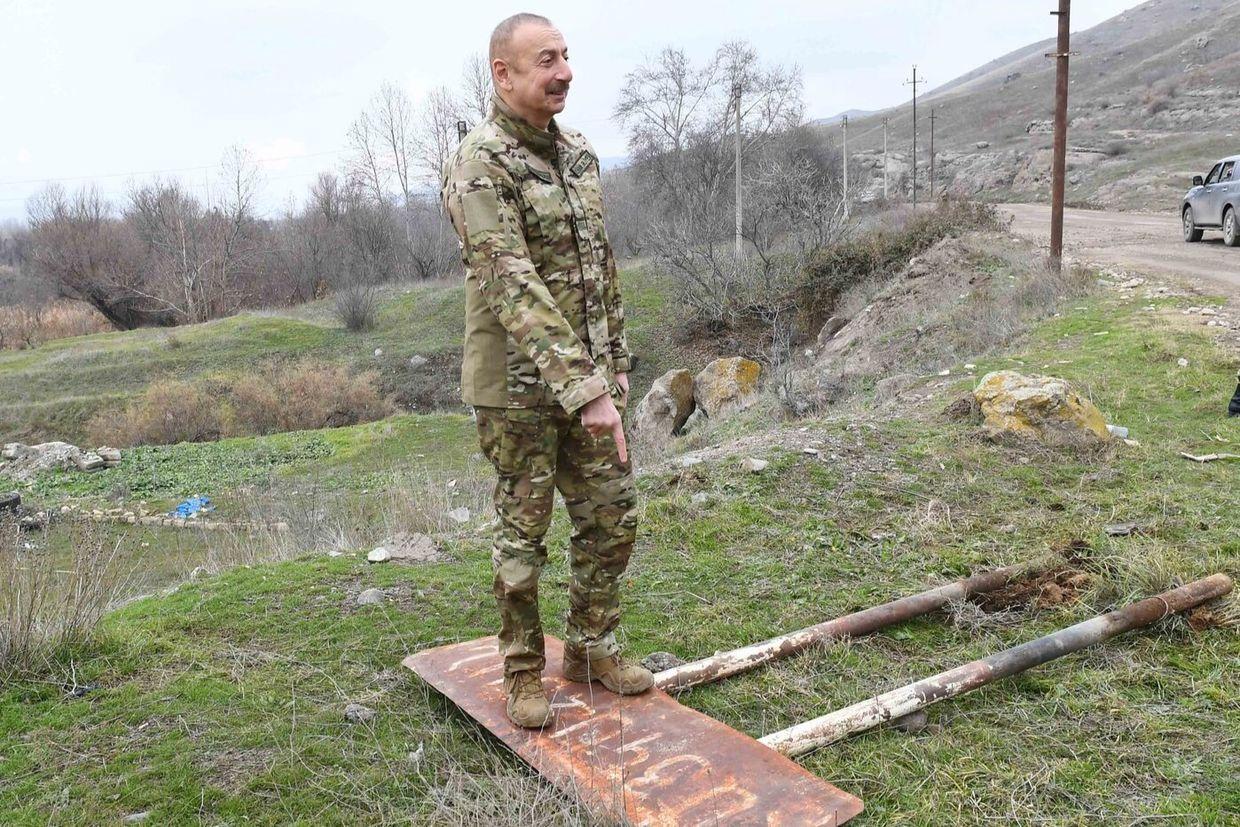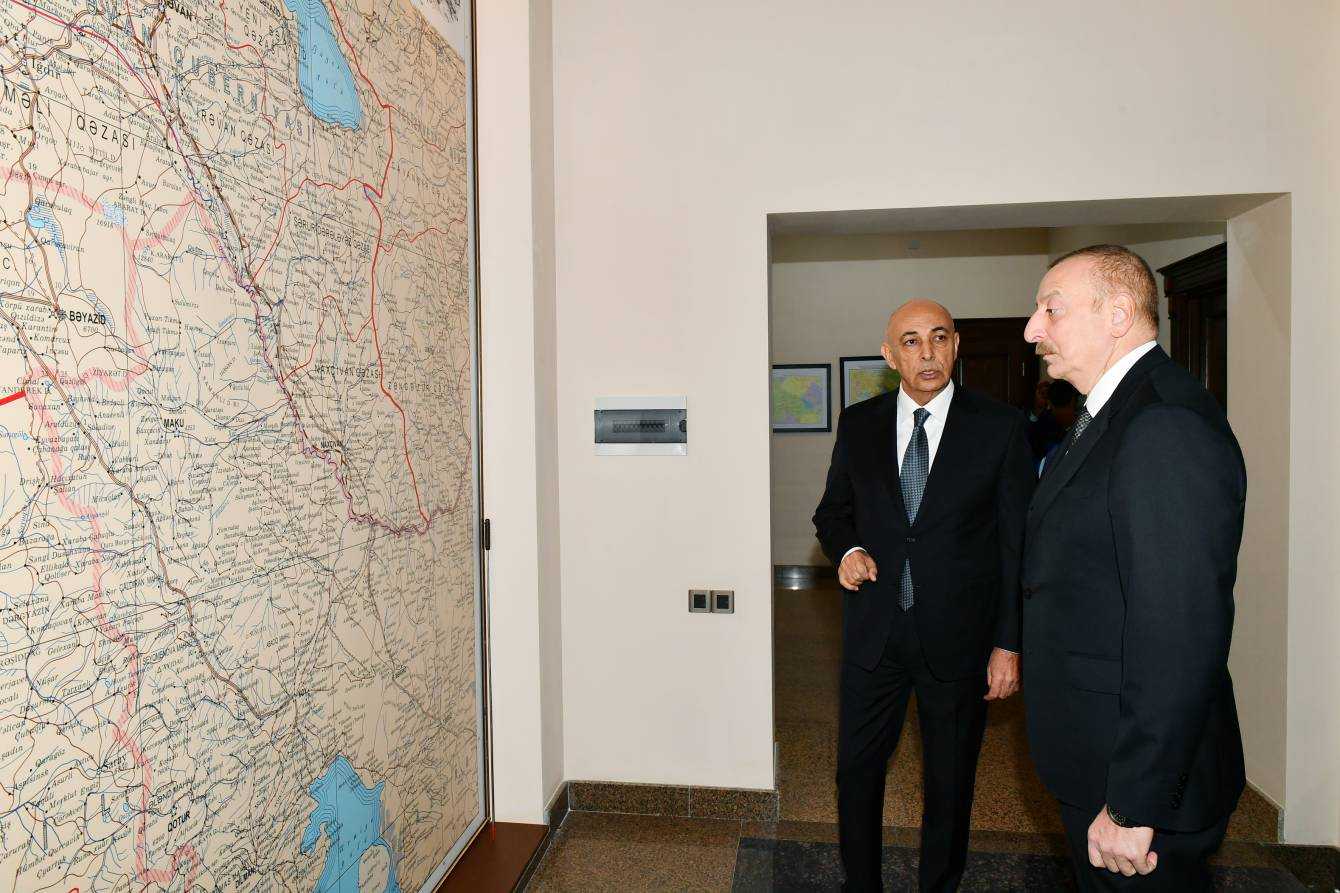Hateful rhetoric towards Armenians has been present in Azerbaijan for decades. While mainly found on social media, it has also been a part of government propaganda, including being used by state agencies to prosecute peace activists.
Yet, in the document initialled by President Ilham Aliyev and Armenian Prime Minister Nikol Pashinyan on 8 August was a clause obligating the parties to ‘combat intolerance, racial hatred and discrimination, separatism, violent extremism and terrorism in all their manifestations within their respective jurisdictions’.
While this pledge may exist on paper, putting into practice and undoing decades of institutionalised anti-Armenian sentiment is something different altogether.
Since the peace agreement was announced, attacks in Azerbaijani media on Armenia and Western politicians perceived to be pro-Armenian have continued unabated, and other practices clearly violating both the letter and spirit of the clause remain unchanged.
Azerbaijani activists told OC Media that there is still a long way to go.
Hate speech as a political charge
Azerbaijani law prohibits racial, national, religious, and social discrimination, as well as hate speech based on any of these grounds. However, according to Samad Rahimli, an Azerbaijani lawyer living abroad, what is meant by the term ‘social discrimination’ remains unclear.
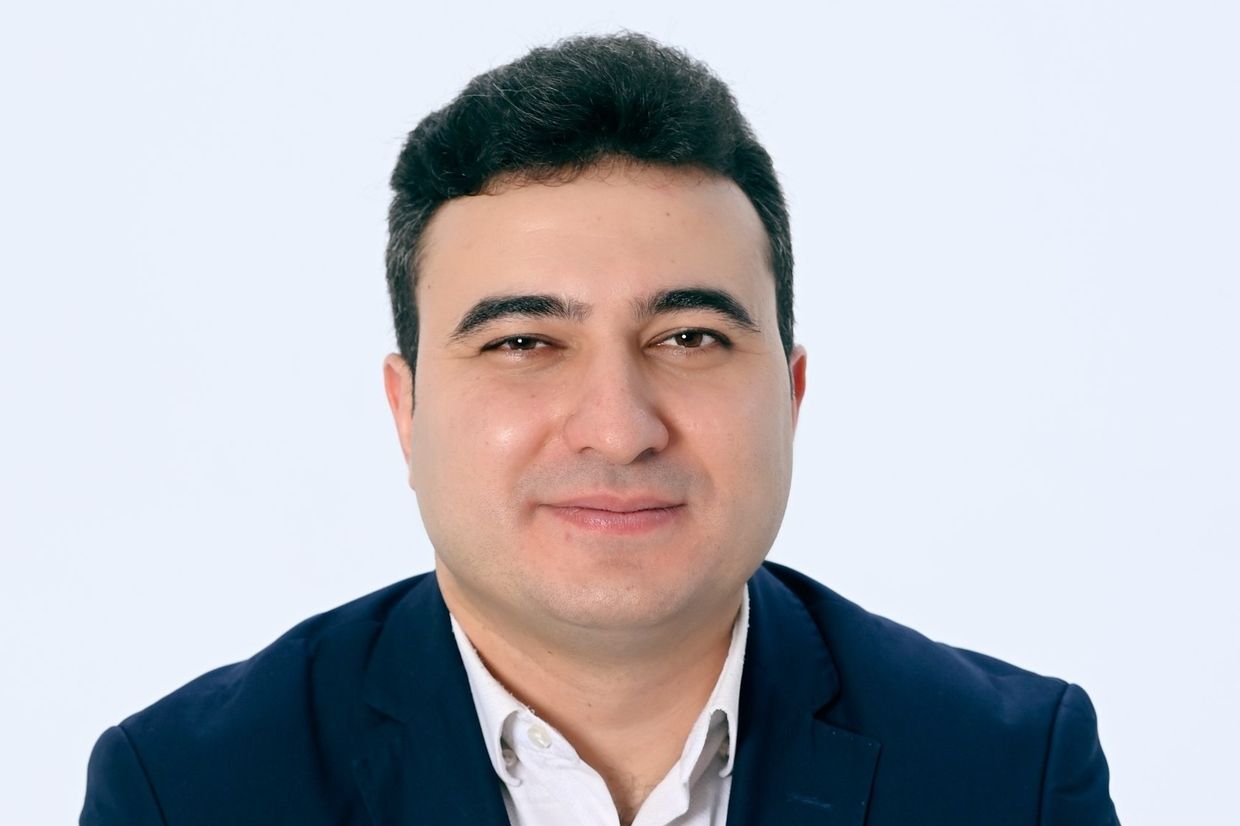
Rahimli cites the cases of Avaz Zeynalli, the editor-in-chief of the independent newspaper Xural, and Rafig Taghi, a freelance journalist who was known for criticising political Islam and the Azerbaijani authorities — both were accused of spreading hate speech, among other things.
Rahimli stresses that this same accusation was also used after six people died during a confrontation between police and local residents in Nardaran, a settlement around 25 kilometres north of Baku, in 2015. In the end, 17 defendants were sentenced to 10–20 years on charges of premeditated murder, illegal possession of weapons, attempted coup d'etat, among other articles.
‘The State Security Service (SSS) is responsible for investigating criminal cases of hate speech in Azerbaijan. And it is also not a secret that in Azerbaijan there are many examples of abuse of this article of the law on hate speech’, Rahimli says.
More recently, Azerbaijani authorities have notably used the term ‘hate speech’ in their cases against prominent peace activists, including against OC Media contributor Bahruz Samadov and Talysh researcher Igbal Abilov. Both were accused of communicating with Armenians and found guilty of treason — Samadov was sentenced to 15 years in prison and Abilov to 18 years.
Rahimli emphasised that despite the abuse of the legislation related to discrimination, ‘what is remarkable is that at present neither the government nor the international community is interested in this issue’.
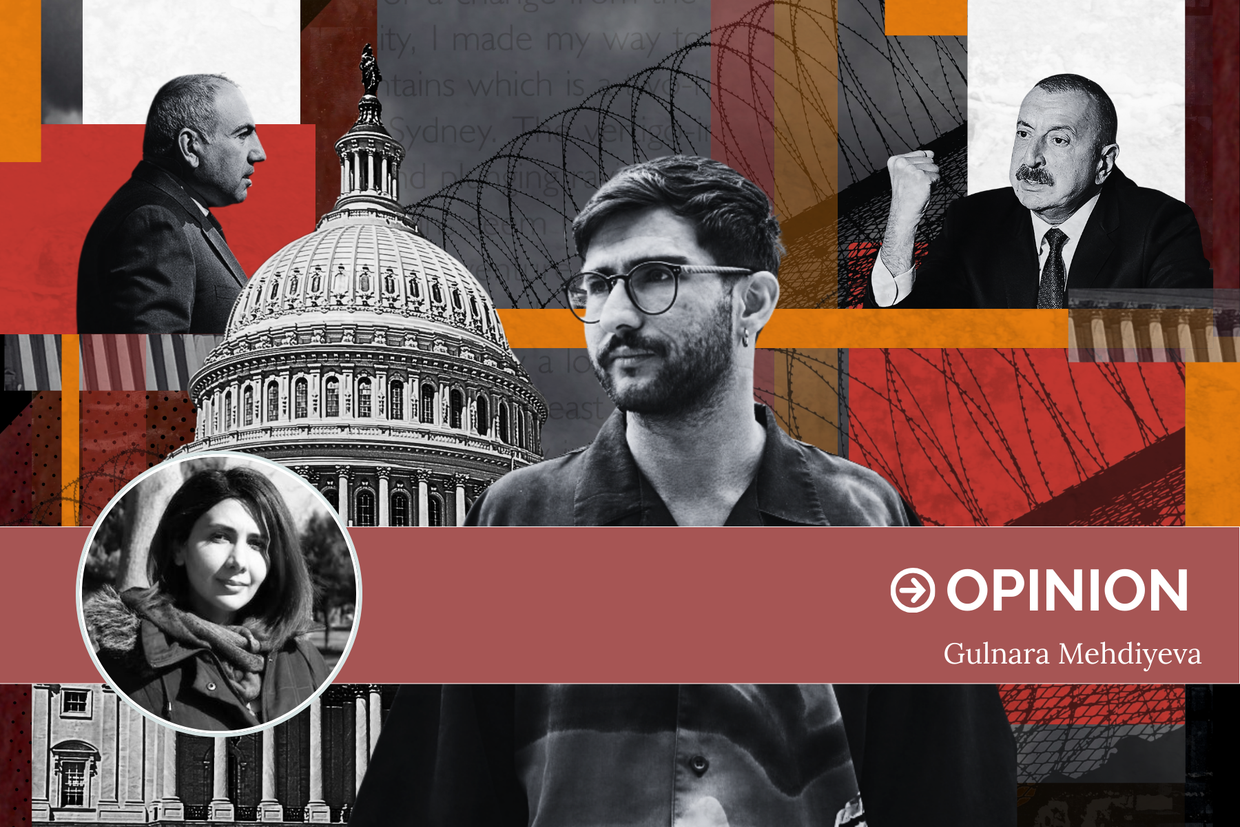
Militaristic rhetoric as a tool of distraction
Vafa Naghi, a feminist activist who lives in exile in France, tells OC Media that the Azerbaijani government militarised society following their success in the Second Nagorno-Karabakh War, leading to a higher militaristic spirit throughout the country as compared to after the First Nagorno-Karabakh War.
‘And in the Second Nagorno-Karabakh War, of course, there was strong propaganda, and almost all narratives were built on this. So, [the increased militarism] is probably not accidental’, Naghi says.
She stresses that the government's propaganda ‘serves both — political and ideological purposes’.
‘For example, the legitimacy of power is based on victory in the war, and it is important for this system to continue this narrative in peacetime. Protecting the image of the enemy is an effective means of silencing critics in domestic politics, branding them as traitors or Armenian cowards. Of course, militaristic rhetoric helps to ignore socio-economic problems. It distracts society from the real agenda’, Naghi says.
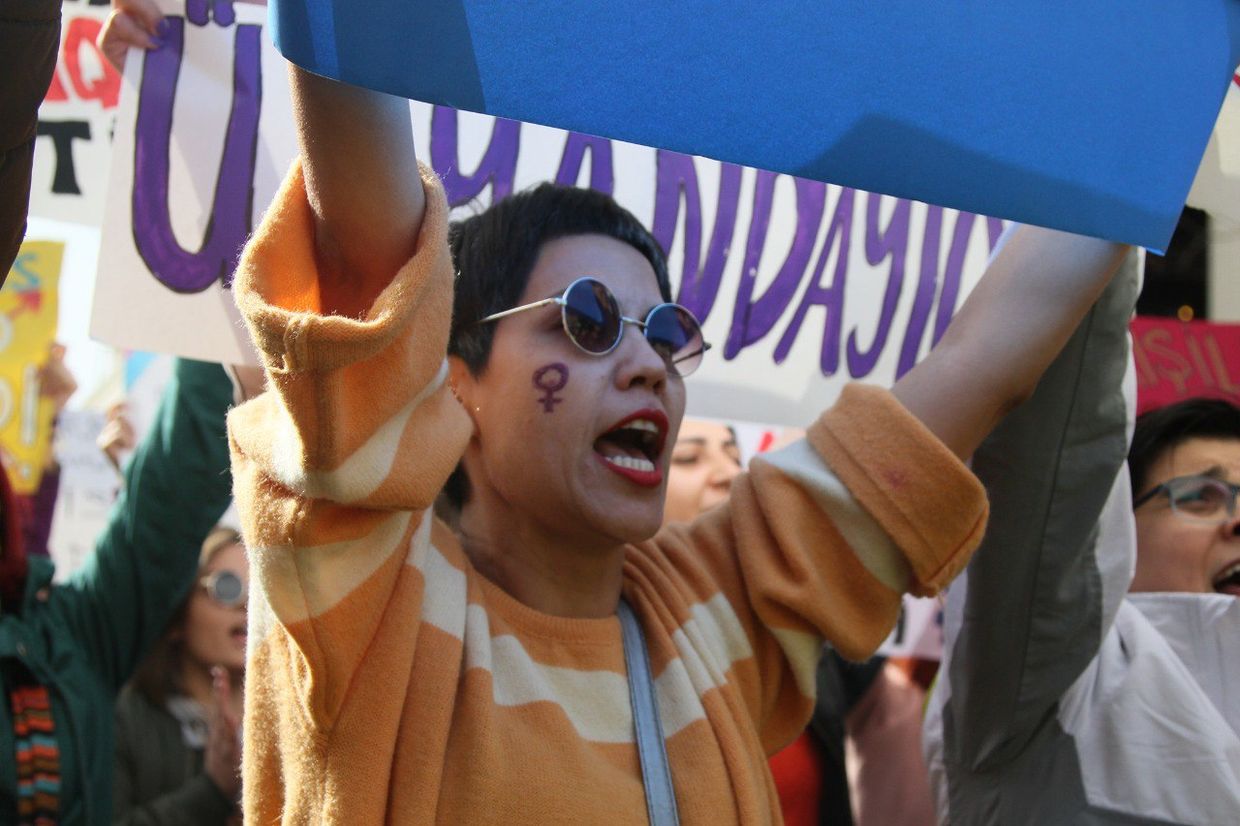
Following the initialling of the 8 August document, Naghi wrote on social media on 12 August that internal peace must be compatible with outside peace.
In her post, Naghi stressed that resolving the conflict ‘remains unclear’ when at the same time there are ‘more than 350 political prisoners in the country, and the image of the “enemy” is the main instrument of legitimacy in domestic politics’.
‘Those who want real peace either end up in prison or are forced to live in exile. This only creates conditions for peace in a “negative” form, that is, a temporary absence of violence, but also an increase in social injustice’, she continued.
Indeed, Rahimli notes that Azerbaijani civil society was against the war, because they knew that after Aliyev got involved, ‘there would be nothing independent left in the country’. What he did not expect, however, was that the West would ‘very easily’ sacrifice the freedoms they themselves promote, such as freedom of speech and freedom of the press, simply for the ‘sake of stability’ in the region.
‘Aliyev also very easily took advantage of this, and here we are’, Rahimli says.
In turn, Azerbaijani activist Javid Asadov said that the concept of peace in the country has always been constrained by what the government deems acceptable.
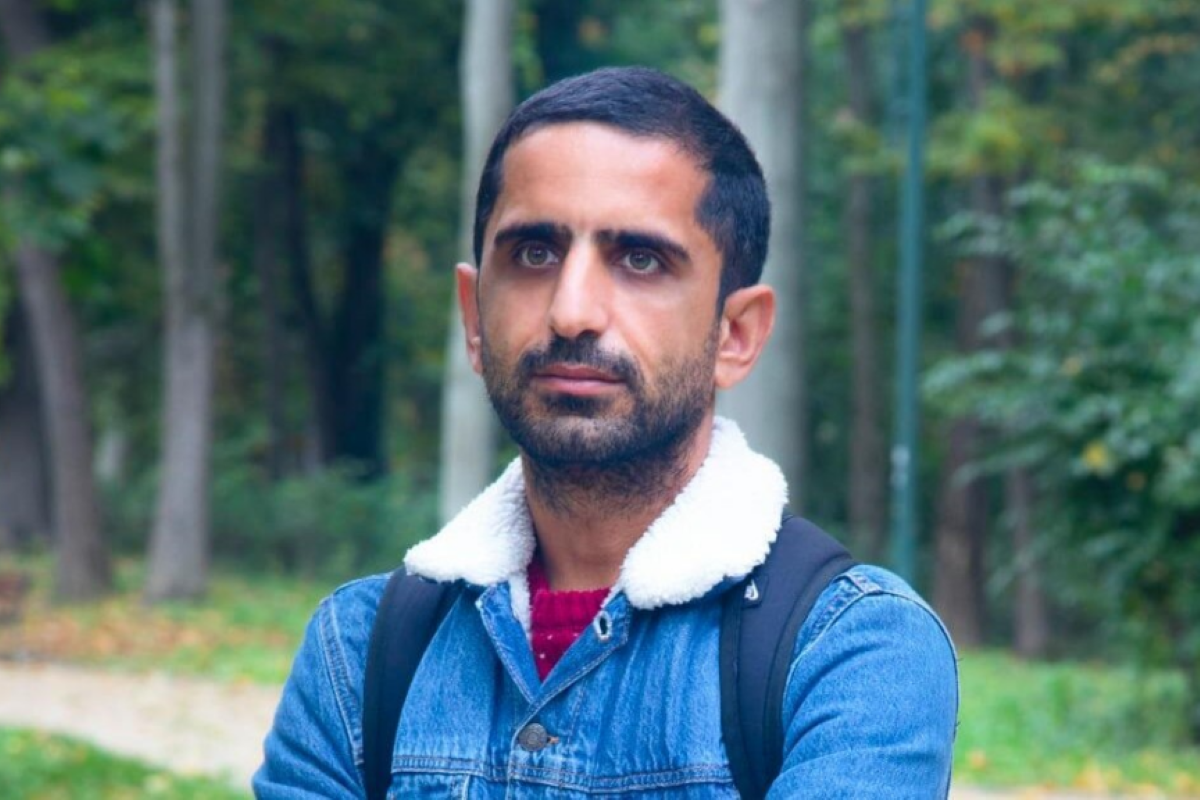
Writing on Facebook, Asadov called out the people filling their social media pages with Armenian–Azerbaijani flags and white doves, stating that they only posted these things after receiving ‘permission from above’.
‘Until now, when someone said “Armenian flag” or “Armenian”, you turned a blind eye and spat. Now you share a photo and pose as a “peace lover” ’, Asadov wrote.
Emin Abbasov, a lawyer who also lives in exile, stated on Facebook that for real peace on the ground, both sides had to take preventative measures to prohibit ethnic hatred, stating that such rhetoric hinders the process of reconciliation.
‘From now on all documents signed on the path to peace must contribute to the establishment of civilised relations between the two countries and the restoration of trust in free (and not only state-controlled) relations’, his post concluded.
In a country where simply working with Armenian peace activists and refusing to buy into institutionalised hateful rhetoric — as Samadov did — can result in a prison sentence for treason, real peace on the ground still feels far away.
Azerbaijani media continues to attack pro-Armenian politicians in the West
The ire of Azerbaijani media and government officials is not only focused on Azerbaijani peace activists or Armenians — it also continues, despite the initialled peace agreement, to extend towards politicians in the West deemed to be ‘pro-Armenian’.
On 18 August, the Azerbaijani pro-government media outlet Caliber published an article detailing how the US Justice Department intended to reportedly try to investigate Democratic Senator Adam Schiff, one of President Donald Trump’s most outspoken opponents. The headline of the article referred to Schiff as being ‘pro-Armenian’.
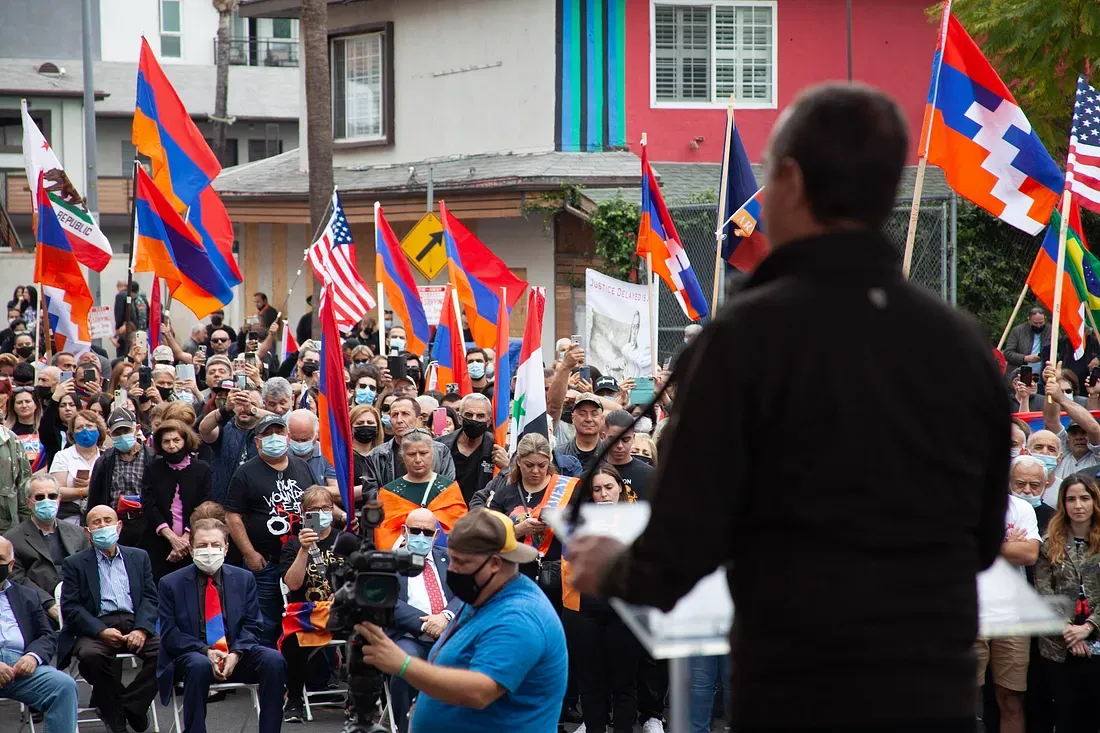
The investigation was widely considered to be motivated by Trump’s desire to seek revenge against Schiff, who headed the probe into the 6 January insurrection.
To be sure, Schiff has actively pursued legislation considered important to Armenian-Americans, namely the recognition of the Armenian Genocide. As a member of Congress, he represented Glendale, one of the centres of the Armenian–American diaspora in the US.
The proposed investigation, however, had nothing to do with his advocacy on Armenian issues.
Nonetheless, Caliber and other Azerbaijani media outlets have repeatedly smeared Schiff and cited US-based news outlets with dubious credibility in their attacks against him.
Schiff has been the subject of or mentioned in a total of 80 articles by Caliber, often under headlines that refer to him with the pejorative name of ‘Armenianophile’.
Former Senator Bob Menendez, who is currently serving a prison sentence on corruption charges — having nothing to do with Armenia — is also a favourite target of Caliber’s attacks.
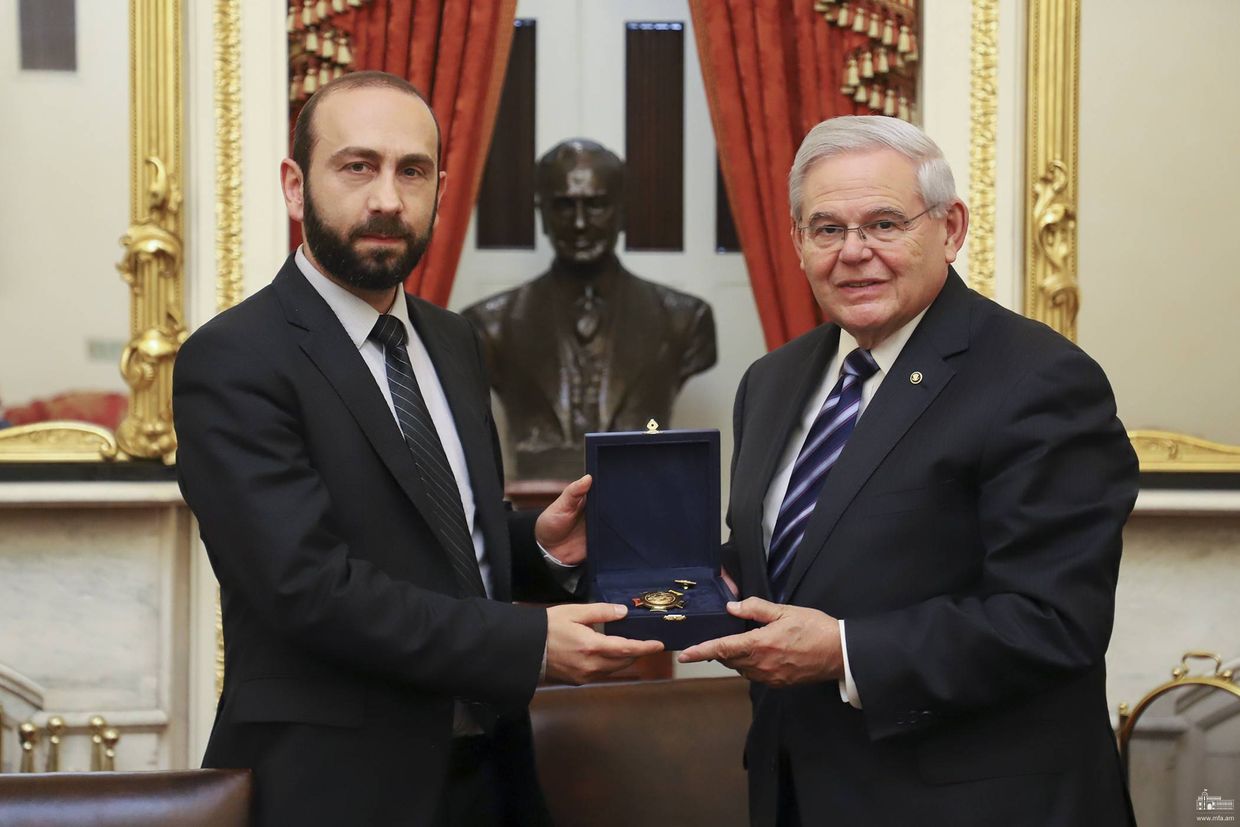
Menendez was also a proponent of Armenian issues, such as support for recognition of the Armenian Genocide and suspending aid to Azerbaijan.
He has been the subject of or mentioned in a whopping 194 articles on Caliber, with the outlet typically also referring to him as an ‘Armenianophile’ and gloating over his prison sentence.
Beyond just singling out individual Western politicians for rhetorical attacks, Azerbaijan has engaged in a long-running, multi-faceted information war against France, one of Armenia’s closest allies.
Most bizarrely, the campaign has included Azerbaijani support for separatist movements in the French overseas territory of New Caledonia. Paris has accused Baku of fomenting riots in the territory in 2024 that resulted in 14 deaths.

On 19 August, Caliber continued its campaign against France, publishing an article entitled ‘France owns colonial crimes in Cameroon, yet offers no reparations’ underneath a picture of French President Emmanuel Macron.
Caliber has also continued to attack Macron personally in connection with domestic French political issues, such as an article that came out on 27 August.
The constant references to French neo-colonialism and New Caledonia are not just in pro-government media, but are ubiquitous even at the official level — there is an entire organisation, the Baku Initiative Group, largely centered on French colonialism. Its ‘about us’ page is empty, but its activities are regularly covered in the state-run news agency Azertag. In July, the organisation held a conference in Baku entitled ‘Towards the Decolonisation of Guadeloupe’, which was described as being ‘dedicated to the island of Guadeloupe under the yoke of French colonial policy’.
Does Azerbaijan plan to end these information wars against Armenia’s allies, in line with the section of the peace agreement that stipulates the two sides will fight against ‘intolerance’ and ‘racial hatred’?
The timing of Caliber’s recent articles on Schiff and Macron casts some doubt on this.
Being denied entry into Azerbaijan for simply having an Armenian name
Azerbaijan has long denied entry to visitors for simply having an Armenian surname — or one that sounds Armenian.
Baku has nonetheless denied there is an official policy.
During a visit to Moscow in 2022, Aliyev was asked about the policy by Kremlin propagandist Margarita Simonyan, who is herself an ethnic Armenian.
‘We do not have a ban on entry on an ethnic basis, and the numerous visits by representatives of the Armenian people to Azerbaijan testify to this […] I even remember personally handing a silver medal to a representative of Ukraine who was an Armenian by nationality. He stood on the podium next to the Azerbaijani boxer who won gold. I awarded him, shook his hand and congratulated him’, Aliyev said.
However, he added that ‘We are responsible for the safety of our citizens and visitors, so we requested that if either the citizens of Armenia or citizens with Armenian surnames want to come to Azerbaijan, the relevant authorities should be notified […] There were cases when an entry was denied, but that happened precisely because these formalities were not observed’.
Despite his twisting of words, it is clear those with Armenian names who are allowed in are the exception, rather than the norm. The de facto policy extends to Armenians in the diaspora — and even to others who simply were mistaken for being Armenian. In 2014, a Turkish athlete was barred from entering Azerbaijan to compete in a competition reportedly because his name — Zafer Noyan — sounded Armenian.
Such practices, whether officially enshrined in law or not, clearly violate the peace agreement’s clause on combating ‘racial hatred or discrimination’.
There are hundreds of thousands of Armenians who were born in Azerbaijan, as well as in Nagorno-Karabakh, but are barred from visiting where they are from due to their name.

Abbasov, the exiled lawyer, told OC Media that this constituted illegal discrimination.
‘The introduction of bans and restrictions on entry into Azerbaijan for citizens of other countries based on their Armenian nationality, determined by the endings of their surnames, is a discriminatory administrative practice carried out by the state based on ethnic discrimination, since the reasons specified in the law are not given’, Abbasov said.
Naghi told OC Media that power in Azerbaijan ‘is so strict’ in this case and the government’s system of denying entry ‘is cruel and authoritarian’.
‘Azerbaijan was intolerant to Armenian surnames and I believe that it will stay in the past, like it should have stayed in the past after the initial agreement’, Naghi said.
She argued that Azerbaijan should lift the unofficial ban to the typical Armenian name ending of ‘yan’ to demonstrate its commitment to the initial peace document.
‘If Azerbaijan will keep this [informal policy] after the [peace] agreement, it means the country will just be putting lipstick on a pig, because if there is going to be peace the issue should be resolved’, Naghi stressed.
Securing peace or simply going through the motions?
According to the exiled lawyer Rahimli, the real reason Azerbaijan agreed to Article 8 in the draft peace treaty is not due to any real humanitarian concerns, but rather because of the lawsuits Armenia and Azerbaijan have filed against each other in the International Court of Justice (ICJ).
In September 2021, Armenia filed against Azerbaijan and in December 2021 the ICJ issued an interim decision, which stated that ‘both parties shall refrain from any action which might aggravate or extend the dispute before the Court or make it more difficult to resolve’.
Rahimli stated that according to the interim decision of the IJC both states must not spread any hateful rhetoric about the other, and must also prevent their citizens from spreading any such hate speech.
Notably, one of the proposed sticking points in past peace negotiations has been a condition from Azerbaijan that Armenia drop all international lawsuits — the clause appears to exist in the 17-point peace treaty, but it is not explicitly defined.
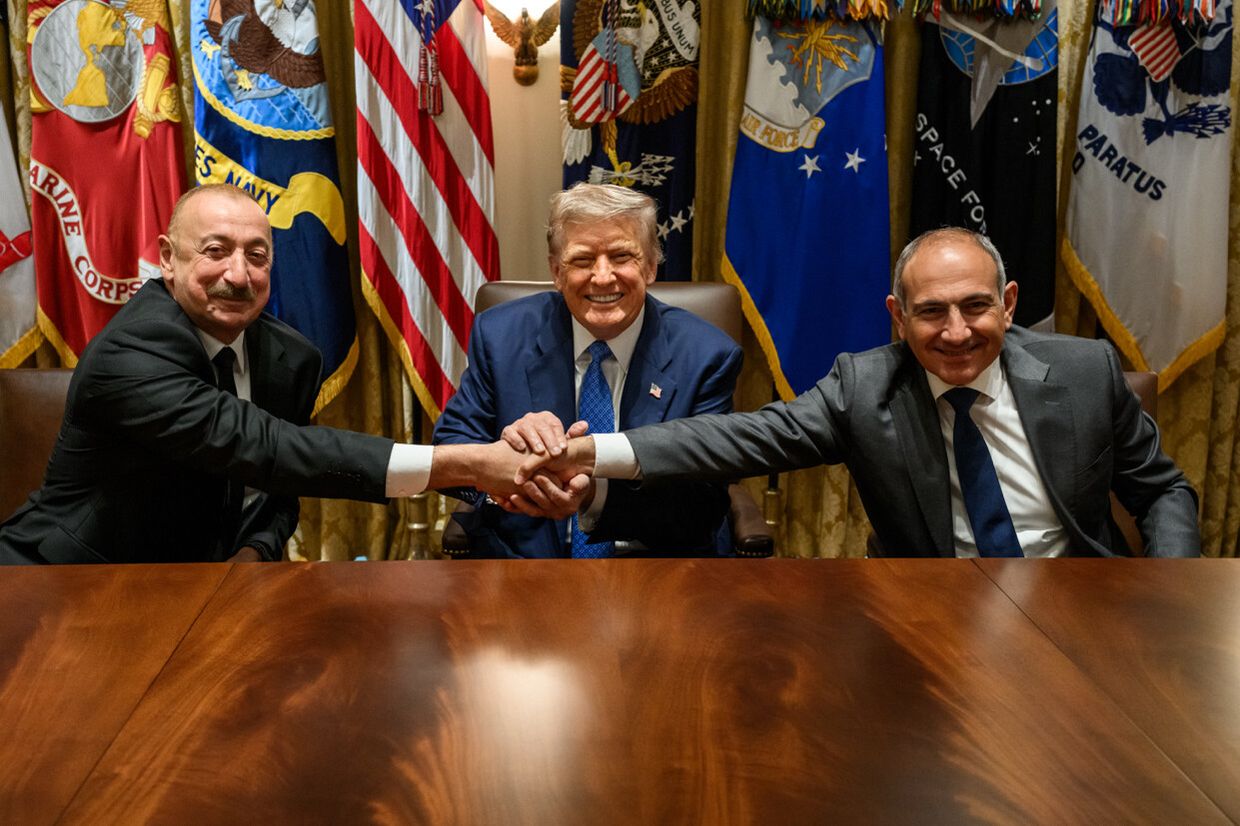
‘In this interim decision, it was also stated in relation to Azerbaijan that Azerbaijan itself, as a state, must not spread hate speech and must also prevent its citizens from spreading hate speech. Of course, Armenia was also obliged to prevent its citizens from spreading hate speech. One of the obligations of the parties to this peace treaty is to withdraw the complaints they have filed’, Rahimli said.
‘And even if the parties withdraw the lawsuit, one of the obligations is that they will settle the issues that are the subject of this court between themselves’.
The withdrawal or dismissal of all existing legal challenges or complaints constitutes a significant challenge in of itself. Moreover, there remains the question of how such complaints will be resolved in the future, as there is both no existing mechanism or body for issues to be mediated, and more importantly, little trust between the two sides.
It remains to be seen if Azerbaijan and Armenia will refrain from using claims of hate speech as a pretext for generating new legal challenges against one another.
As Armenia and Azerbaijan edge closer towards officially signing the peace treaty, finally bringing decades of conflict to an end, significant challenges remain to making the peace something more than just the guns going quiet.
Even in the best scenario, in which the treaty is signed, both sides agree on the route between mainland Azerbaijan and Nakhchivan, and the borders finally open, decades of hate and dehumanisation on both sides will not just disappear overnight.
Rolling back Azerbaijan’s institutionalisation of anti-Armenianism is a key part of this, and as long as it remains de facto government policy, a real lasting peace could remain out of reach.
